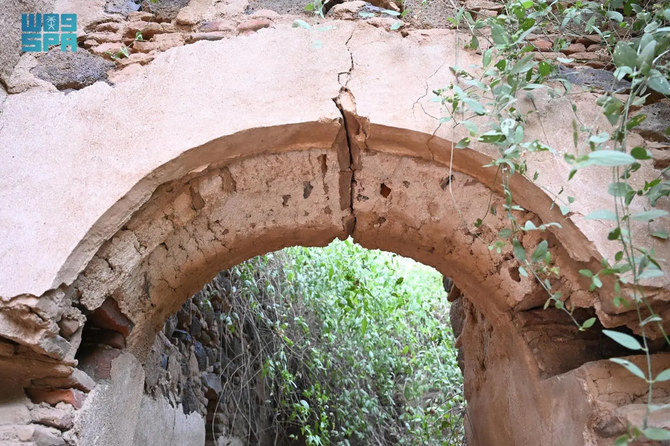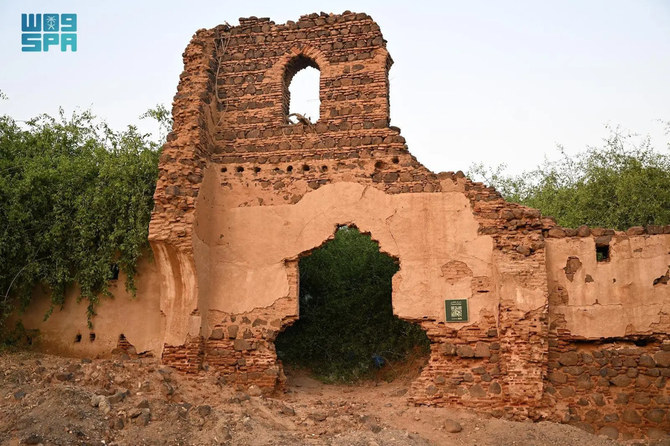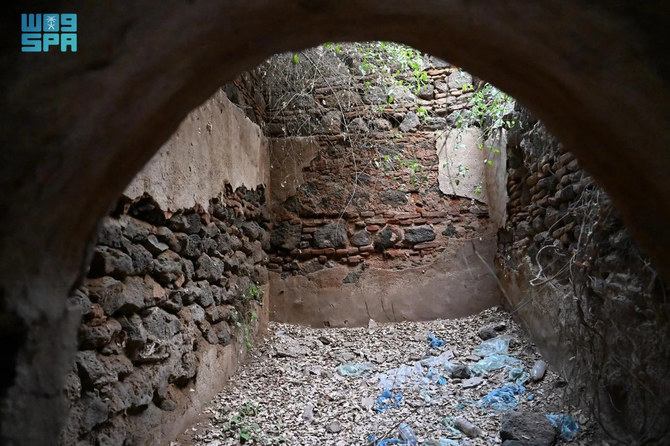ABU ARISH: Jazan province is home to a number of historic castles spanning ages and representing significant civilizational and tourist landmarks in the region.
The sites showcase identity, values and traditions, which are reflected in architectural details dating back centuries. They contain rocks, columns, pottery, writings, inscriptions and special decorations, serving as regional tourist attractions for heritage enthusiasts.
The historic castle in Abu Arish, located 33 km from the city of Jazan, dates back hundreds of years. It is a prominent example of the region’s rich historical and civilizational heritage.
The castle is square-shaped with a side length of 40 meters. It is supported by circular towers found at each of its corners. The upper part of its outer wall contains openings once used for observation.

The castle, some parts of which are still standing tall to this day, was built using burnt-clay bricks. (SPA)
Local building materials were used by skilled workers from the region to use burnt-clay bricks in building the castle’s walls, openings, towers and arches — the most common style in the region’s ancient cities.
Columns used in the construction of the circular towers — used in guard operations and garrisons — were reinforced with rocks, a common style in castles found along the Red Sea coast.
Additionally, stems of Doum Palm trees were used in the construction of the castle’s roofs. These trees are common in the region, especially in the area surrounding Jazan Valley in the south.




















